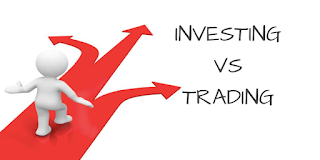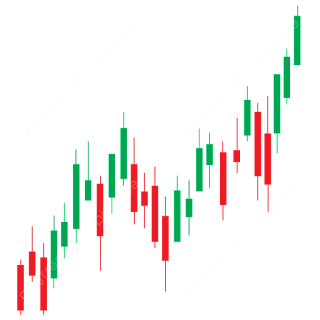Trading vs. Share Market: Unveiling the Differences and Finding Your Best Fit. Master in Share Market/Trading/Stock Market.
Trading vs. Share Market: Unveiling the Differences and Finding Your Best Fit
In the world of finance and investment, two terms that often cause confusion are "trading" and "share market." Both concepts involve the buying and selling of financial instruments, but they differ significantly in their approaches and objectives. In this blog post, we'll explore the key differences between trading and the share market, helping you understand which might be the best option for you.
Trading: Navigating the Dynamic Waters of the Financial Markets
Definition: Trading refers to the practice of buying and selling financial instruments (such as stocks, commodities, currencies, and derivatives) within relatively short timeframes, often spanning from seconds to days. Traders aim to profit from short-term price fluctuations and market trends.
Key Characteristics:
Time Horizon: Traders focus on short-term gains, capitalizing on price movements that occur within a single trading session or a few days at most.
Frequency: Trading involves frequent transactions, with traders executing multiple trades in a single day.
(Previous Post:- Mastering And Successful in Digital Marketing)
Strategies: Various trading strategies, such as day trading, swing trading, and scalping, are employed to exploit different market conditions.
Risk and Reward: Trading can offer high-profit potential but comes with increased risk due to rapid price changes. Successful traders must employ risk management techniques.
Skill and Dedication: Trading demands a deep understanding of technical analysis, chart patterns, market indicators, and the ability to make quick decisions.
(Read More:- Buy Some daily Useful products in 75% Discount)
Share Market: Long-Term Ownership in Established Companies
Definition: The share market, also known as the stock market or equity market, facilitates the buying and selling of company shares (ownership stakes). Investors purchase shares to become partial owners of companies.
Key Characteristics:
Time Horizon: Investors in the share market have a long-term perspective, aiming to benefit from the company's growth and value appreciation over years or decades.
Frequency: Transactions in the share market are less frequent compared to trading. Investors buy and hold shares for extended periods.
Strategies: Common strategies in the share market include value investing, growth investing, and dividend investing. These strategies focus on a company's fundamentals and long-term prospects.
Risk and Reward: While the share market can also be risky, it generally offers more stable returns over the long term due to the potential for compounding growth and dividends.
Skill and Dedication: Investors need to research and analyze companies to make informed investment decisions, but the time commitment is usually less intensive compared to trading.
(Read More:- Earn Daily Money From Print on demand Websites)
Which One Is Best for You?
The choice between trading and the share market ultimately depends on your financial goals, risk tolerance, time commitment, and expertise. Consider the following factors when making your decision:
Time Available: Trading demands more time due to its short-term nature, while share market investing requires periodic research and updates.
Risk Tolerance: Trading involves higher risk due to its fast-paced nature, whereas the share market provides more stability over the long term.
Skill and Knowledge: Successful trading requires in-depth market knowledge, technical analysis skills, and the ability to manage rapid decision-making. Share market investing necessitates understanding a company's financial health and growth potential.
Financial Goals: If you're seeking quick profits and can handle high risk, trading might be suitable. If your goal is long-term wealth creation and stability, the share market aligns better.
In conclusion, both trading and the share market have their merits, but they cater to different types of investors. Trading offers potential for quick gains but requires substantial expertise and time commitment. On the other hand, the share market provides a path to gradual wealth accumulation with a more manageable skill and time requirement. Assess your goals and risk tolerance carefully to determine which approach aligns better with your financial journey.
Keywords:-
Trading vs Share Market: Understanding the Key Differences"
"Exploring the Distinctive Features of Trading and Share Market"
"Trading or Share Market: Which Suits Your Investment Style?"
"Pros and Cons of Trading and Share Market for Investors"
"Choosing Between Trading and Share Market: What You Need to Know"
"Investing Strategies: Comparing Trading and Share Market Approaches"
"Trading vs Share Market: A Comprehensive Comparison"
"Beginner's Guide: Trading vs Share Market - Making the Right Choice"
"Long-Term vs Short-Term: Deciding Between Trading and Share Market"
"Profit Potential and Risk Factors: Trading vs Share Market"
"Investment Goals: Picking Between Trading and Share Market Activities"
"Investor's Dilemma: Trading, Share Market, or Both?"
"Trading, Share Market, and Wealth Building: Which Path to Take?"
"A Closer Look at Trading and Share Market: Which One Wins?"
"Maximizing Returns: Trading, Share Market, or a Balanced Approach?"






Comments
Post a Comment